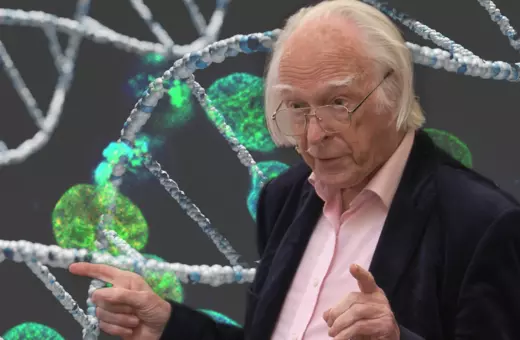Every year more people die from microbes that have evolved to evade modern medicine, than do from malaria and AIDS combined. By the year 2050, antimicrobial resistance could overtake cancer as the leading cause of death. The post-antibiotic apocalypse is already here, and we need to learn to live with it, argue Lorenzo Servitje and Clare Chandler.
You have been exposed to antimicrobial resistance. You have likely seen news stories about “the silent pandemic” and warnings about “superbugs.” A doctor may have hesitated to prescribe you an antibiotic or a pharmacist counselled you to take your entire course of antibiotics, even if you felt better. For those unfortunate enough to develop an infection that is drug resistant, this can mean a hunt for a next-line antibiotic and if that fails, a long period of recovery as the body uses its own defences to fight the infection. Sadly, for many, recovery becomes impossible. Patients, families and health care workers become reminded of the miraculous quick-fix that antimicrobial medicines are, and how we have come to take them for granted.
Understandably, a future without antibiotics looms as a dire spectre. The language used to describe such a future is often apocalyptic in nature, much like in the case of climate change. But like climate change, the warnings are not about a distant future that we’re trying to prevent. Antimicrobial resistance is already here.
Unopened Penicillin Ampoule (1946), first discovered in 1928, and later synthesized
into a therapeutic at scale in 1945.
Antimicrobial resistance (AMR) occurs when microbes evolve mechanisms that allow them to neutralize or evade the medicines we have developed to treat the infections they cause. This phenomenon can occur in all forms of microbial life: viruses, parasites, fungi, and bacteria. While AMR occurs in nature, over 80 years of widescale use of antimicrobials has created concentrations orders of magnitude beyond what pre-twentieth-century microbes had encountered. Consider this evolutionary pressure, along with the ability of microbes to exchange genes with each other capaciously. Compound that with the expansive and dynamic reservoir that human travel, trade, industry, and infrastructure have created in the environment--and the extent of AMR becomes challenging to grasp. Though the scale of the risk and its different drivers and mediators can be hard to conceptualize, the human cost is clear--but not necessarily made visible.
Despite the complexity and extent of the problem, time is still of the essence. This is not a hypothetical future or concern for “what’s coming next”; antimicrobial resistance is already here--we are in trouble now.
___
The O’Neil report in 2016 estimated that by 2050, ten million people could die each year, potentially eclipsing cancer as the leading cause of death.
___
In 2019, 1.27 million deaths worldwide were directly attributed to resistant bacterial infections, according to a recent study in the Lancet. As a point of familiar reference, the number of deaths caused by AMR annually is nearly 50% of the 3 million people who died attributed to COVID-19 worldwide in 2020; that’s nearly equivalent to the annual mortality of HIV/AIDS and malaria combined.




















Join the conversation